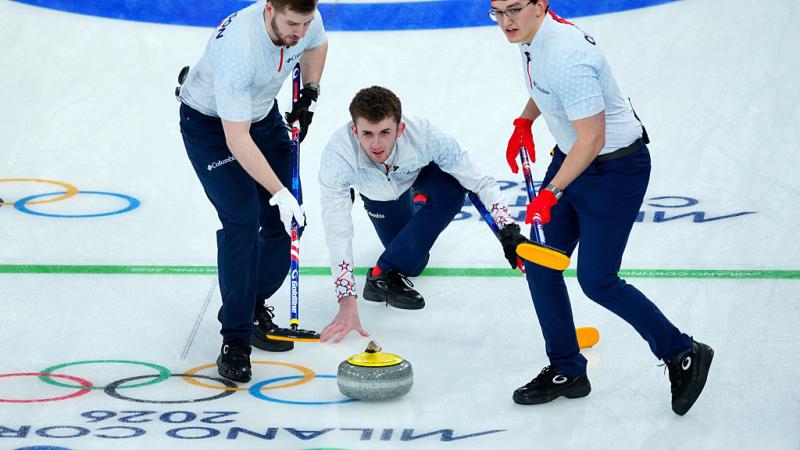Will shift to distance learning during campus closures reshape American education?
Overnight transition not a fair test of online instruction's potential, some experts fear.
The coronavirus pandemic, which has resulted in an unprecedented shutdown of wide swaths of American public life, has also essentially closed American higher education for the time being: It is far easier to find a closed university than an open one.
As the disease began working its way across the country, universities and colleges one by one began closing down their physical spaces, shuttering their campuses and ordering their students to return home. Most campuses have become ghost towns, operated by skeleton staffs of administrators and maintenance crews, with only a scant few allowing a handful of students to remain in dorms if they need to.
Yet rather than close down completely, most of those schools have transitioned to online classroom arrangements, in which students can continue to attend classes virtually while adhering to the social distancing guidelines that have become nearly universal throughout the country over the last few weeks.
It likely represents one of the most ambitious, albeit uncoordinated, educational experiments in history: Can you successfully digitize an entire country’s higher education industry very nearly overnight? And if so, what does that say about the future of distance learning? Where does it go from here?
Distance education itself is already widespread throughout the United States: The National Center for Education Statistics estimates that in the fall of 2017 there were well over 6.5 million American students enrolled in online programs, nearly a third of all postsecondary students in the country. Nearly half of those were exclusively enrolled in online programs; slightly more than half had “at least one” online course.
When they hear of online education, most people might picture private, for-profit corporations, the ones that build vanilla, office park-like campuses in the suburbs of American cities and whose commercials pop up regularly on network television and YouTube advertisements: Strayer, the University of Phoenix, DeVry University. Yet those establishments form a relatively small minority of the overall online education industry: the NCES says the vast majority of students who attend virtual classrooms do so at more traditional institutions. Not even 15% of all online attendance is done at private, for-profit organizations.
Distance education, then, is very much a concern for legacy institutions, including those known for their idyllic and venerated campus experiences: Schools like Harvard and Princeton and Northwestern and Chicago all have their own exclusively online divisions, while more and more state and regional schools are expanding their digital opportunities. Indeed, the existence of those programs is likely why many American schools were able to transition with (relative) ease to online learning environments.
A vital question to ask, then, is: Does this near-total transition to online learning suggest an upcoming major shift in the distance education economy? Will schools be able to use this monumental adjustment to expand online learning and perhaps fundamentally reshape American higher education?
Dr. Wallace Boston, the president of the private, for-profit, online American Public University System, says yes. “I believe we will see an uptick in distance education” following the pandemic, he told Just the News.
“The most likely reason that we will see an uptick is that many institutions will want to keep some form of online instruction and infrastructure in the event that this pandemic recycles through again or that there is another event that might require social distancing or quarantines,” he argued. “Some may even view online offerings as strategic opportunities for their institution.”
Boston pointed out that working adults have been utilizing online learning for years, while collegiate athletes have been able to use it to stay current on their studies while traveling for competitions.
Dr. Thomas Tobin, on the other hand, thinks the pandemic is the wrong kind of test of distance learning, and now is the wrong time to ask about its prospects. In an article for The Chronicle of Higher Education, he cautions against any sort of meaningful present assessment of online education, arguing that “few people will be doing their most effective teaching under shove-it-online circumstances.”
Tobin told Just the News via email that he did not expect a significant rise in online education following this crisis.
“The shift to remote instruction in response to the COVID-19 pandemic is unlikely to lead to significant increases in people seeking online learning,” he said.
Claiming that “online learning requires a different mindset and practical skills on the part of instructors and students,” he said: “What we're doing in response to the pandemic is not online learning. It's remote instruction, with face-to-face instructors and students moving to online and technology-mediated methods out of necessity.”
“Both instructors and students,” Tobin continued, “have had little preparation for this shift, and neither group should think that what we've all just done is somehow synonymous with good online education.”
David Smith, the associate provost for online learning at Pepperdine University, predicted a mixed bag. “The current situation will certainly provide some tailwinds for online learning, as faculty and students get used to a new framework,” he said via email. “Some might end up sticking with it, and so the shift to online learning (which was already occurring) is likely to get a boost.” Responses to the ad-hoc setup at Pepperdine have been positive so far, he added.
Higher education, of course, is not the only pedagogy being subject to a crash-course in distance education. Countless K-12 schools across the country have closed as well, throwing millions of students and parents into an unexpected homeschooling experiment, one that could very well provide a boost to the ranks of homeschoolers in this country. The homeschooling community, which numbers about 2.5 million students in the United States, has been seeing steady growth for years, and several weeks or months of necessary home instruction may convince many parents that it’s worth the sacrifice.
Not everyone is optimistic about that. Writing in The Washington Post, education analyst Kevin Huffman warns that, in light of the great untested educational experiment currently underway, “our expectations for the remainder of this school year should be low.” Like Tobin, Huffman points out that the transition has been unanticipated and chaotic, what he calls “a hastily arranged mess” that could leave K-12 students much worse off than normal, particularly lower-income students who lack access to the ample hi-tech resources enjoyed by more affluent families.
“Our teachers are trying their best, but their hands are often tied by bureaucracy, limited student access to technology, the lack of lead time to prepare for this situation, and the limited effectiveness of delivering school remotely,” Huffman writes. “Results will range from lackluster to catastrophic, with the largest burden falling on the poorest kids.”
Ultimately it will be difficult to predict what education, distance or otherwise, will look like on the other side of the coronavirus pandemic. It may be that online education receives a major boost from its forced experiment, or it may be that universities and school districts — frustrated and harried by the difficult, mandatory transition — end up putting it off for years.
In the end, of course, it will likely matter less what an institution wants and more what students themselves prefer; if they enjoy their own experiences with online schooling, they may demand more of it from their institutions.
“Great teachers are able to impart knowledge to students regardless of the format, face-to-face or online,” Boston said. “I happen to believe that students are the best at determining which format works best for them.”
















